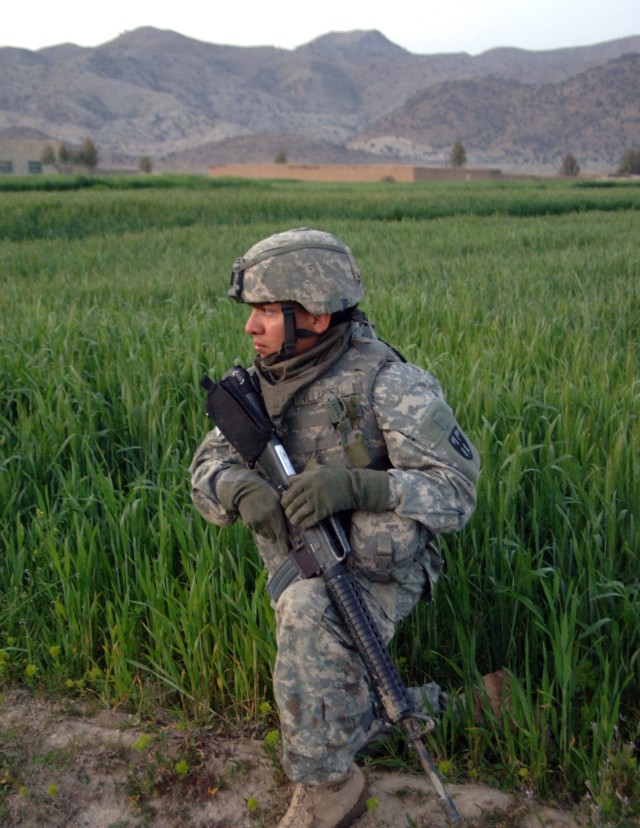WASHINGTON (Army News Service, April 16, 2007) - National Guard and Army Reserve Soldiers will mobilize and deploy for only one year, despite a new policy that active Soldiers will deploy for 15-month tours, a top defense official stressed Friday.
Mr. Thomas F. Hall, assistant defense secretary for reserve affairs, reaffirmed that reserve-component Soldiers are not affected by the 15-month tour policy that Defense Secretary Mr. Robert M. Gates announced April 11.
Four National Guard brigades have been alerted for possible mobilization for duty in Iraq beginning in December 2007. If needed, those brigades will mobilize, deploy and redeploy within one year.
"We have been experiencing 18- to 21-month mobilizations for our Guard and Reserves," Mr. Hall said. "Families and employers told me that they simply could not sustain that."
On Jan. 19, soon after taking office, Mr. Gates mandated reserve components would mobilize for one year and then have five years before another mobilization.
A second portion of Mr. Gates' decision was that reserve-component units would train and deploy as units. Mr. Hall said the "cross-leveling" that cobbled together units would end.
Finally, Mr. Gates said that a compensation package would be developed if units broke their dwell time at home - in other words, were mobilized before the five-year home-station period was finished. Mr. Hall said such a package is in development, and the details may be released soon.
About 13,000 Guardsmen from the four units - the 37th Brigade Combat Team, from Ohio; the 76th BCT, from Indiana; the 45th BCT, from Oklahoma; and the 39th BCT, from Arkansas - will mobilize under the new rules. While all these units have been in U.S. Central Command before, for fully two-thirds of the Guardsmen, this will be their first deployment.
Under the program, nine to 10 months before a potential mobilization, DoD officials will alert the Guardsmen.
"We're going to get you that time for training; we're going to get you the equipment ahead of time," Mr. Hall said. The 45th Brigade Combat Team, for example, has already scheduled a 28-day training period instead of its normal two-week rotation, he said.
This will also help reduce stress on the force. There are 75,771 Reservists deployed worldwide to support the war on terrorism, Mr. Hall said. This is 120,000 fewer than in 2005. "We have reduced the number of Guardsmen and reservists on active duty the equivalent of six Army divisions," Mr. Hall said. "Now we want to make this more predictable."
All of these changes are aimed at preserving the all-volunteer force, Mr. Hall said. The force is working magnificently. Recruiting standards remain high, he said. And, through March, overall reserve components are at 101 percent of their recruiting goals. The Army Reserve is down from its goals, he said, but Mr. Hall said he expects those numbers to climb in the coming months. The National Guard is at more than 106 percent of its recruiting goal.
"But, most important in my view is retention," the secretary said. "It is almost at all-time highs. It's the best it's been since 1991. You just don't stay with an organization or company that you don't like.
"So, we must be doing something right," he added, "because (servicemembers) are staying at near record numbers."
(Mr. Jim Garamone writes for the American Forces Press Service.)


Social Sharing